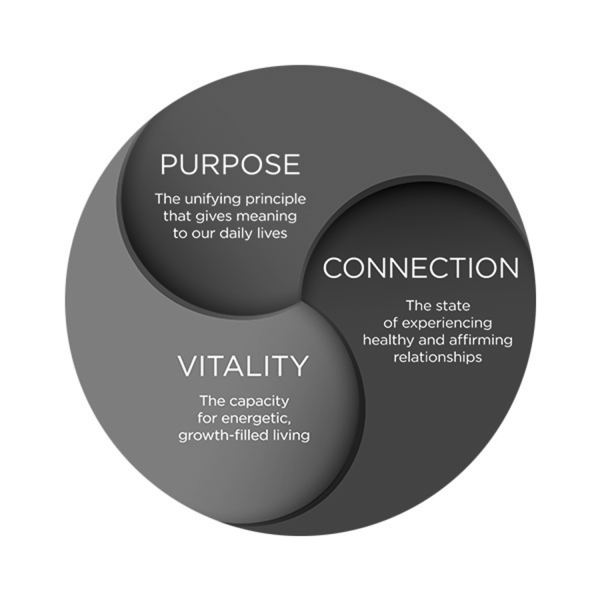Gustavus is now on board with the idea of incorporating mindfulness into students’ daily routines. Mindfulness means focusing on the present moment and being aware of one’s thoughts, feelings, and the actions without attaching judgment to them. It can help students to embrace reality and the present instead of reflecting on the past or looking to the future.
“From a psychology standpoint, if you are consciously making those observations about your life and such, you are going to have a healthier brain. You are also going to have a coping mechanism that when you feel out of control, you have something to rely on to get you focused on what the problem is, and how to find a solution,” Senior Psychology Major Elizabeth Best said.
Mindfulness is used as a method of treatment for a range of issues, such as anxiety, depression, substance abuse, eating disorders, chronic pain, and cancer. According to the Mindfulness Project, several studies with college students suggest that the practice of mindfulness leads to decreases in stress and anxiety, improvements in concentration and attention, increases in self-awareness, and overall emotional wellbeing.
“From my personal experience, it helps me be in better touch with what is happening. I allow myself some time to feel sad, stressed, or angry. I think it’s healthy, but I also focus on the positive in each day to help create balance. It helps you sort out some problems and reflect on them,” Best said.
There are many methods used to explore mindfulness, including meditation, yoga, and tai chi. What is known as the ‘The Mindfulness Project’ at Gustavus includes a working group taking part exploring these different methods.
The Mindfulness Project states it is dedicated to exploring, researching, applying, and promoting mindfulness and contemplative practices for all members of the Gustavus campus community.
Director of Wellbeing Meghan Krause formed the group that will be exploring this project.
“I formed this group to capitalize on the good work of these individuals so that we can work to shape a cohesive and interdisciplinary approach to contemplative practice. We want to advance learning environments that support focused attention, wonder, compassion, open inquiry, and social connectedness,” Krause said.
These practices have been a part of the Gustavus community for years, but have recently gained more attention. With the new group on campus and the ‘Exploring Religious Questions’ series that focused on Meditation, Mindfulness, and contemplative practices from religious and medical standpoints, mindfulness is a growing topic of conversation on campus.
“These practices are important as they serve as a crucial platform for deepened awareness of both self and others. The greatest asset of leaders is a strong self-awareness and understanding for the needs of others, and mindfulness and contemplation are central to both of these,” Director for Leadership and Community-Based Service in Center for Servant-Leadership David Newell said.
“Contemplative practices help enhance focus, decrease negative emotion, diminish fatigue, improve memory, promote emotional intelligence, increase cognitive abilities, and even reverse the aging process.”—Meghan Krause
People among campus that already take part in these practices support the idea that it is a good way to create a positive attitude among the student body. The Working Group is dedicated to contributing towards the bettering of people’s learning, teaching, and working in education.
“To me, mindfulness is simply bringing intention in what we spend our energy paying attention to. It is being purposeful with our time and focus and giving weight to time spent thinking without distraction. We live in a culture that is very much about doing but offers little expectation around time spent thinking,” Newell said.
Not only do personal testimonies support mindfulness, but research also supports the value of contemplative practices in multiple aspects of life. These practices are found to be beneficial in areas ranging from the work force to athletics.
“Beyond thinking, mindfulness and contemplation have physical health benefits. I think students are overwhelmed with obligations at times, which is exacerbated by the need to feel connected, with others or through technology. There is no longer down time. Mindfulness allows for rejuvenation as it slows us down in the busy pace of life, and brings intention to our time and allows the space to reconnect with oneself,” Newell said.
“Contemplative practices help enhance focus, decrease negative emotion, diminish fatigue, improve memory, promote emotional intelligence, increase cognitive abilities, and even reverse the aging process,” Krause said.
Anyone interested in joining the Mindfulness and Contemplative Working Group can visit the Wellbeing Center. All are welcome to join, and more information can be found on the Gustavus Wellbeing website.
-Haley Bell

Hello i must say that this is very useful post for me as well as for all and i really appreciate your ideas.
Thanks and keep on sharing